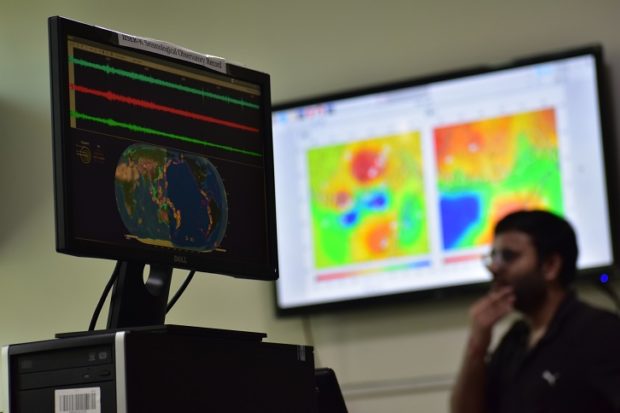
35 new seismological observatories to become operational by Dec, announces govt
PTI, Jul 23, 2021, 6:36 PM IST

New Delhi: The National Center for Seismology (NCS) will commission 35 new stations by December, taking the strength of the seismological network to 150, Lok Sabha was informed on Friday.
In a written response to a question, Earth Sciences Minister Jitendra Singh said additional 100 new stations will be installed by March 2026.
The NCS, under the Ministry of Earth Science, is the nodal agency of the government for monitoring and studying earthquakes in and around the country.
For this purpose, the NCS maintains a National Seismological Network (NSN) consisting of 115 observatories spread across the country.
The network is capable of recording any event of magnitude 5 and above in and around Delhi, magnitude 3 and above for the northeast region, magnitude 3.5 in and above in peninsular, magnitude 4 and above in the Andaman region and magnitude 4.5 and above in border regions.
In order to spatially densify the gap areas and to improve the magnitude detection threshold down to magnitude 3 in the country, 35 new stations have been planned in the country and installation is already in progress.
It is also planned to strengthen the National Seismological Network (NSN) further by adding 100 seismic stations in the next 5 years to increase the detection capability of earthquakes up to magnitude 2.5 throughout the country.
“All the 35 new stations shall be commissioned and will start functioning by December 2021. Thus, the strength of the National Seismological Network (NSN) will increase to 150 by December 2021. Subsequently, additional 100 new stations will be installed by March 2026,” Singh said.
Responding to a separate question on the prediction of earthquakes, he said as on today, there is no proven scientific technique available, anywhere in the world, to predict or forecast in advance the occurrence of earthquakes with a reasonable degree of accuracy with regard to space, time and magnitude.
No country has the capability of predicting the occurrence of earthquakes in advance. However, research efforts are made in India and elsewhere for developing an Earthquake Early Warning (EEW) System, to alert people once an earthquake occurs based on the arrival time of the P-wave of the earthquake, he added.
The warning time, however, is much shorter and of the order of a few seconds. The robustness and success rate of such warning systems are to be assessed thoroughly before the system can be considered for real-time operations, he said.
Udayavani is now on Telegram. Click here to join our channel and stay updated with the latest news.
Top News

Related Articles More

Notorious gangster wanted in UAPA case arrested at Nepal border

‘Condition critical’, say doctors as farmer leader Dallewal’s fast enters 27th day

ISRO to study how crops grow in space on PSLV-C60 mission

Vandalism at Allu Arjun’s residence in Hyderabad

PM Modi to attend Christmas celebrations hosted by Catholic Bishops’ Conference of India
MUST WATCH
Latest Additions

Kannada Sahitya Sammelana: Food distribution creates stir

Rohit gets hit in nets, practice pitches on slower side

India & Kuwait elevate ties to strategic level; ink defence pact after PM Modi meets top Kuwaiti leaders

In Kuwait, PM Modi meets yoga practitioner, other influencers from Gulf country

Notorious gangster wanted in UAPA case arrested at Nepal border
Thanks for visiting Udayavani
You seem to have an Ad Blocker on.
To continue reading, please turn it off or whitelist Udayavani.
















